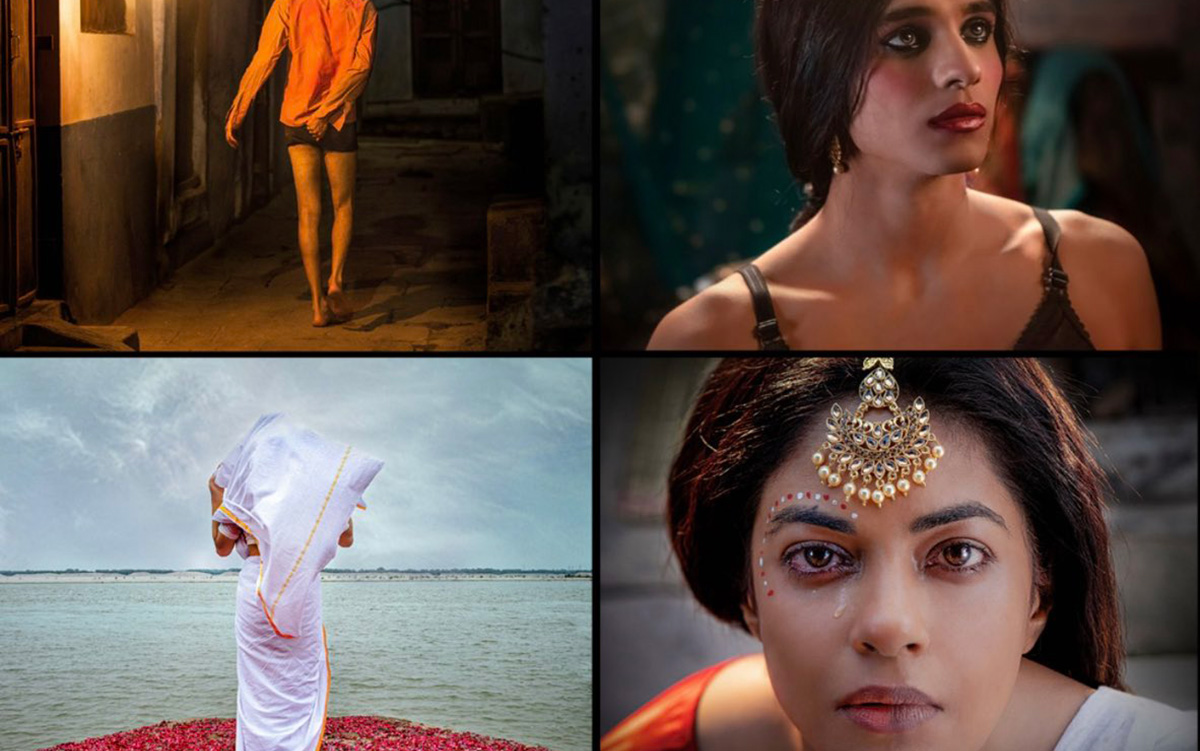“Safed” movie poster (Photo courtesy of Meera Chopra’s X page)
Transgender Indians are one of the country’s marginalized communities that often face abuses, ridicule and a denial of basic human rights. Although the Hindi film industry, often known as Bollywood, releases more than 1,000 movies every year, it has not made many movies to depict the pain of the trans community, which is generally considered taboo in the country.
“Safed” — a Bollywood movie that means “white” in Hindi — last month created a buzz in India and around the world. The movie featured trans people and a widow, both of whom are ostracized in the country.
The film’s story depicts a lonely, abandoned trans person and a widow who finds solace in each other. Indian Bollywood actresses Meera Chopra and Abhay Verma starred in the film and successfully depicted the discriminatory behavior in society against trans people and widows.
“Everyone wants to make a film that appeases masses, shows everything in a positive way with a happy ending, but making films like ‘Safed,’ which portrays the dark side of the society, is courageous,” said Barkha Bisht, the Indian actress who played the part of Radha, a trans person in the film. “People are saying that we have done this movie for the love of the people, but I do not agree with that, we did it for a reality check to people. In our society, we have a section of people, that often face ostracization. People do not even want to look at them. More than love, we need empathy from people.”
While talking to the Indian media during the promotion of the film, Verma said this film talks about equality for all in society. Verma played opposite Chopra, her trans co-star who played the part of a widow.
“It’s all about creating a balance in the society. We have tried our best with pure intentions, and our work should be taken purely by the moviegoers,” said Verma. “Our goal is to portray the reality of the society and if that conveys successfully, I would consider my work done.”
Even though “Safed” is not the first film that depicts the misery of trans Indian people, often in earlier times, the Indian film Industry has shown trans people in funny roles, in criminal roles or horror movies, which further leads to more discrimination.
In 1999, a Hindi film, “Sangharsh,” performed well on the silver screen in India and around the world.
The film successfully portrayed a trans character in a negative role that led to further isolation of the community in India. Many critics believed “Sangharsh” added a third gender character on the big screen, but the role of Ashutosh Rana as a trans villain was so horrific that many critics believed the portrayal of a sadistic serial killer left a lasting impact on society at large.
In 2011, the film “Murder 2” also brought a similar storyline and invoked transphobic characteristics of the film.
Emraan Hashmi, one of India’s A-listed actors, played the role of an ex-police officer who chases a sadistic trans woman who murdered sex workers. The film performed well at the box office and led to further demeaning of the trans community.
Bollywood movies also portray trans people as laughing stocks in many films.
In films such as “Kya Kool Hain Hum,” “Masti” and “Partner,” trans characters were in comical setups that often invoked stereotypes in society. Indian films have played a very important role in society since the advent of the big screen in the country, often impacting society, be it romance, crime or culture.
India’s one of the most prominent actresses, Miss India and Miss Universe runner-up Celina Jaitly, while talking to the Washington Blade said combating discrimination of any kind requires a change not just in laws and policies but in hearts and minds too. Changing attitudes is never easy, she said, but it has happened on other issues, and it is happening already in many parts of the world on this one.
“It begins with often difficult conversations,” said Jaitly. “One of the best ways to have these difficult conversations is also via films. Indian cinema has played an important role in conditioning the mindsets of Indians of all backgrounds as films have a reach towards all genres of society, hence films based on taboo topics are of utmost importance.”
“Movies like ‘Safed,’ ‘Super Deluxe,’ ‘Chitrangdha: The crowning wish’ or my own film ‘Seasons Greetings: A Tribute to Rituparno Ghosh,’ play a very important role in tapping into the subconscious even though the majority of people may watch them just for entertainment,” she added.
Jaitly also played an important role as the United Nations Equality Champion for the trans community in India and around the world.
While talking to the Blade, she said cinema is like literature it is the reflection of society and not only does it influence society, but has a great impact on successive generations.
“The problem faced by LGBT films are not the films themselves but the general mindset towards the LGBT community,” said Jaitly. “Most Indian audiences remain hugely conservative; the biggest block is that the society is not ready to educate themselves about homosexuality and its acceptance on any level. Reasons could be anything from religious to sheer ignorance.”
“Despite decriminalization of homosexuality the stigma remains strong as ever and it is definitely not easy to dispel common misconceptions and negative stereotypes,” she added. “In addition, filmmaking in India is more about ‘return of investment,’ business and Rs 200 crore benchmarks as a result LGBT films end up becoming small, parallel initiatives.”

Jaitly said India needs more movies like “Safed.” She said cinema can be used as a tool to proactively combat harmful messages, educate, audiences about pressing social issues and encourage critical thinking.
Jaitly advised the Indian film industry and film makers to stop creating trans characters and storylines without meaningful trans inputs.
“Filmmakers who are interested in making films on the trans community they need to focus on the project so that audiences don’t just casually react to their films, but also engage with them on a deep, emotional level,” she said. “It is also important to cast trans people in trans roles: Only they should portray and become the beacons of reflections of the agonies and ecstasies of their journeys, no matter what the script demands.”
Jaitly added filmmakers hold supreme responsibility in being sensitive, empathetic and rational while attempting to make films on trans issues.
“The underlying principles of treating people respectfully and equally is a no-brainer and requires no special education,” she said. “Cinema like literature is the reflection of society and not only does it influence society but has a great impact on successive generations.”
Ankush Kumar is a reporter who has covered many stories for Washington and Los Angeles Blades from Iran, India and Singapore. He recently reported for the Daily Beast. He can be reached at mohitk@opiniondaily.news. He is on Twitter at @mohitkopinion.
The National LGBT Media Association represents 13 legacy publications in major markets across the country with a collective readership of more than 400K in print and more than 1 million + online. Learn more here: NationalLGBTMediaAssociation.com.









